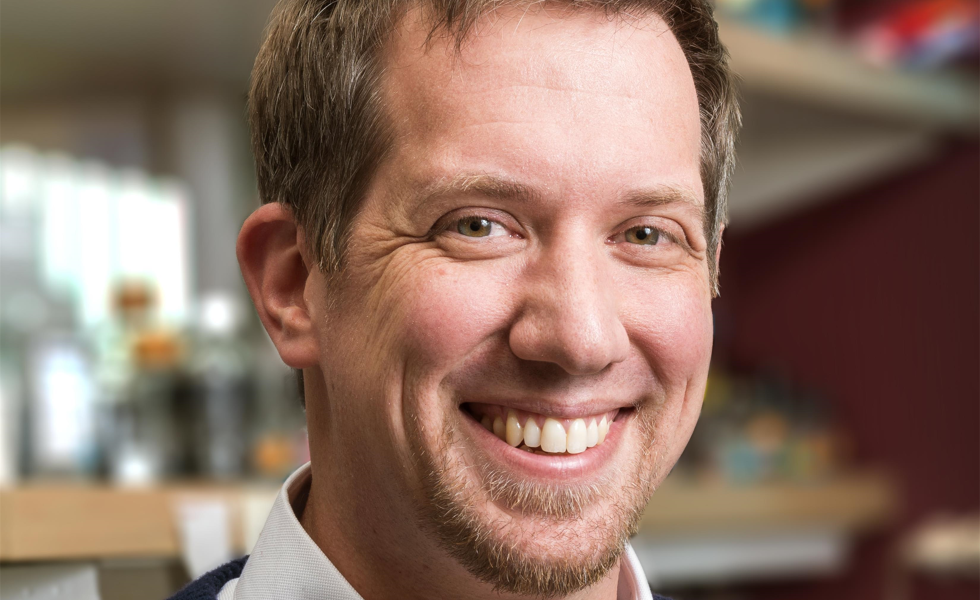
-
Careers • News • Contact us •
- Login
- Français
Nov 20, 2023
From 11:30 AM to 12:30 PM
Location
110, avenue des Pins OuestMontréal, QC, H2W 1R7Canada
ContactChristine Matte, Coordonnatrice aux affaires académiques / Academic Affairs Coordinatorchristine.matte@ircm.qc.ca
IRCM Conference
David Shechner

How does RNA compartmentalize and functionalize the human genome?
David Shechner, PhD
Assistant Professor
Department of Pharmacology
University of Washington
Seattle, WA, USA
This conference is hosted by Martin Sauvageau, PhD. This conference is part of the 2023-2024 IRCM conference calendar.
In person:
IRCM Auditorium
110, avenue des Pins O, H2W 1R7 Montreal
Online:
Zoom Link : https://zoom.us/j/95269762104
ID : 952 6976 2104
Code : 476372
IRCM conferences are set to occur under a hybrid format. However, please note that last-minute changes to online-only lectures may occur due to unforeseen circumstances. We invite you to visit this webpage again a few days before attending.
About this conference
Mammalian nuclei are partitioned into thousands of biochemically distinct microcompartments that collectively control nearly all genomic functions. RNA is thought to play a central role in this compartmentalization, through mechanisms that have been challenging to investigate with current tools. To address this challenge, we recently developed O-MAP—a nearly universal in situ proximity-biotinylation method for probing the subcellular microenvironment near a target RNA. Here, we adapt O-MAP into a general approach for biochemically characterizing single-locus genomic neighborhoods, by targeting the nascent transcripts expressed therein. Our principal model is a "Splicing Factory" that is assembled around nascent Titin (TTN) pre-mRNAs during cardiomyogenesis. This Factory is thought to compartmentalize other cardiomyogenic genes, controlling their expression and splicing; its disruption causes a lethal and incurable form of Dilated Cardiomyopathy (DCM). By applying O-MAP to introns on nascent TTN transcripts, we have systematically mapped the Factory's proteome, transcriptome, and genomic interactions—achieving the first biochemical characterization of a single-locus subnuclear neighborhood. This revealed a unique architecture in which DNA-repair and nuclear-matrix factors build a "hub" of quiescent chromatin around nascent TTN. This hub recruits and compartmentalizes dozens of RNA-binding proteins—along with hundreds of their target transcripts—which appear to be localized post-transcriptionally. In a DCM model, nearly every facet of Factory architecture is rewired, including the complete ablation of Factory-chromatin interactions, and the global remodeling of TTN-proximal proteins and transcripts. This remodeling appears to "poison" the biogenesis of other mRNAs, inducing splicing defects previously observed in DCM patients. This work establishes a powerful new approach for studying facets of nuclear architecture that are intractable by current methods. It furthermore reveals novel, potentially general mechanisms by which nascent transcripts remodel nuclear architecture during tissue differentiation, and suggests a host of new DCM disease mechanisms and therapeutic targets.
About David Shechner
Dr. David Shechner completed his undergraduate training in the department of Molecular Biophysics and Biochemistry at Yale, where he studied protein folding and design in the lab of Dr. Lynn Regan. He was an NSF predoctoral fellow in the laboratory of Dr. David Bartel at the Whitehead Institute and the Department of Biology at MIT, where he did foundational structural and mechanistic analysis of an artificial ribozyme termed the class I ligase. David then when on to his postdoctoral training in John Rinn's lab at Harvard, as an HHMI/Jane Coffin Childs Postdoctoral fellow, were he focused on developing new, "open source" technologies for studying and manipulating human long noncoding RNAs. He's continued this work in his own lab, which started in 2017 in the Department of Pharmacology at the University of Washington Medical School, in Seattle.
To make sure you don't miss any of the IRCM conferences, sign up now for our newsletter!

© Montreal Clinical Research Institute, Année.All rights reserves. | Privacy policy | Terms of use | Web site by Agence Riposte


